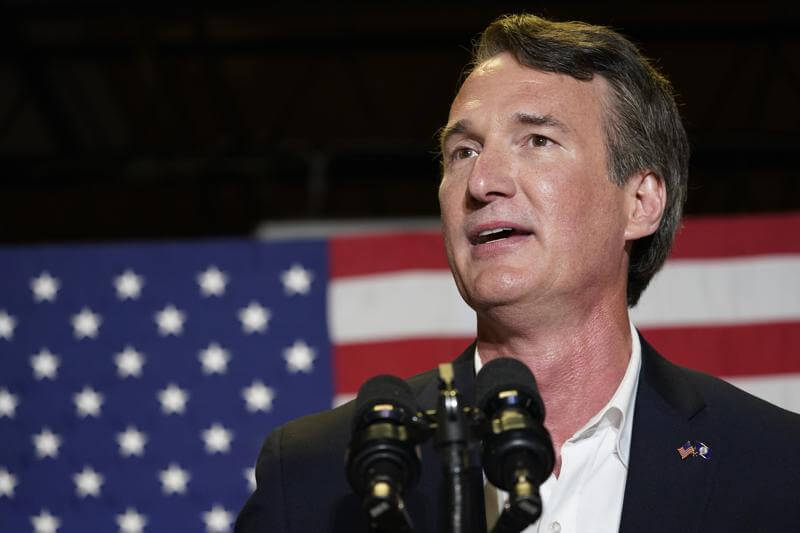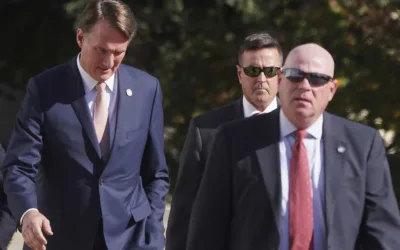
Glenn Youngkin claims the state has “radical policies” in place. But the details are a bit different.
RICHMOND-Yes, there are restrictions involving late-term abortions in Virginia. Taxpayer dollars also don’t pay for all abortions given out in the state. People appear confused about what Virginia’s law actually says in the wake of a controversial video released July 8.
Earlier this week, self-described “grassroots political web show” The Undercurrent sent a video to MSNBC. The video was of Republican candidate for governor Glenn Youngkin, allegedly at a June fundraiser. Youngkin, who didn’t know he was being recorded, was asked if he promised to defund Planned Parenthood and “take it to the abortionists.”
“I’m going to be really honest with you. The short answer is, in this campaign, I can’t. When I’m governor and I have a majority in the House we can start going on offense. But as a campaign topic, sadly, that in fact won’t win my independent votes that I have to get,” Youngkin said.
“So you’ll never hear me support Planned Parenthood. What you’ll hear me talk about is actually taking back the radical abortion policies that Virginians don’t want.”
That last part brought out multiple responses. Democratic candidate for governor Terry McAuliffe accused Youngkin of lying to voters.
“Glenn knows he is completely out of step with Virginians, and he’s now admitted to hiding his real agenda just to get elected,” McAuliffe said in a statement. “Virginians cannot trust a word that comes out of his mouth.”
Virginia Planned Parenthood Communications Director Rae Pickett echoed McAuliffe’s words.
“The intended impact of all defund bills is to eliminate access to care through Planned Parenthood health centers,” she said in a statement. “Politicians like Youngkin are willing to cut off access to a wide range of reproductive care and primary care.”
In the last few days, people across social media also started getting involved, talking about the “radical policies” they want to see eliminated. The only problem? The actual details are a bit different.
When Can Women Have Abortions?
First, there’s confusion over when abortions are allowed in Virginia. To be clear, there are specific restrictions. A woman can get an abortion up to the end of the second trimester, as long as it’s done in a hospital. After that, it’s not as easy.
Once a pregnancy enters the third trimester, three doctors have to sign off. Each one must say the pregnancy will either a) result in the woman’s death or b) permanently impair her mental or physical health. If all three doctors don’t do that, the abortion doesn’t happen.
Beyond that, the procedure has to be done in a state licensed hospital. Also, all medical staff involved have to agree that if the fetus survives the abortion attempt, it will be placed on life support “if there is any clearly visible evidence of viability.”
Here’s the section of the Virginia Code detailing this law.
So if that’s the law, where’s the confusion? That dates back to a Jan. 2019 interview by Gov. Ralph Northam. At the time, he was talking about a bill before the Assembly. It would have reduced the number of doctors needed from three to one. It would have also removed the language requiring a woman’s health to be in danger, in order to perform a third trimester abortion. The Assembly tabled that bill in the 2019 session and hasn’t brought it up again.
Northam was talking in this interview, about what happens when a woman with a nonviable pregnancy goes into labor.
“The infant would be delivered. The infant would be kept comfortable,” Northam said. “[The] infant would be resuscitated if that’s what the mother and the family desired.”
Memes instead claimed Democrats wanted the legal ability to kill a child after birth. That wasn’t the case, as the interview shows.
Who Pays For Abortions?
People also seem confused about who pays in Virginia. A familiar accusation says tax dollars cover the cost for all abortions. In that video mentioned earlier, Youngkin echoes the same line. That’s not completely accurate. According to the Virginia Code, Medicaid funds are only used to pay for abortions in three situations.
First, if pregnancy comes from rape or incest. Second, if pregnancy threatens the life or health of the mother. Finally, if the fetus has incapacitating physical or mental deformities. Unless one of three criteria get met, Medicaid funds do not pay for abortions.
The issues come up as abortion policy becomes a focus in the 2021 governor’s race. As Youngkin wants to make changes, McAuliffe has campaigned on a promise to enshrine Roe vs. Wade’s protections into state law.
JOIN THE CONVERSATION: Sign Up For Dogwood’s Newsletter

Here’s everything you need to know about this month’s Mercury retrograde
Does everything in your life feel a little more chaotic than usual? Or do you feel like misunderstandings are cropping up more frequently than they...

VIDEO: Check out Dogwood’s new merch line
Big news, Virginia! We've officially launched our Dogwood merch line 🎉 This year, we celebrate 5 years of bringing you Virginia news you can use....

VIDEO: Your support matters!
Your support matters! Donate today. @vadogwoodnews Your support matters! Visit our link in bio to donate today. #virginianews #virginia #community...

Op-Ed: Virginia’s new Democratic majorities pass key bills to improve your lives, but will Youngkin sign them?
The 2024 Virginia General Assembly regular session has wrapped up. It was a peculiar session from the outset, with Democratic majorities in the...

From the state rock to the state flower, here’s how Virginia got its symbols
Have you ever wondered why the Dogwood is the state flower? Or how the cardinal became the state bird? We’re here to answer those questions and more...

VIDEO: Second-gentleman Douglas Emhoff gives speech on reproductive freedom
Second gentleman, Douglas Emhoff touched on reproductive freedom not only being a woman's issue but "an everyone's issue" during the Biden-Harris...




